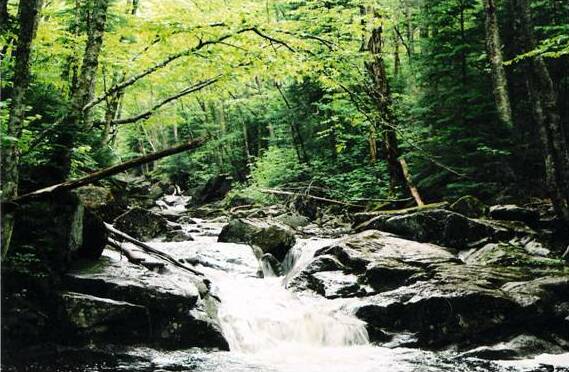
Ecosystem ecology
Ecosystem ecology is the integrated study of living (biotic) and non-living (abiotic) components of ecosystems and their interactions within an ecosystem framework. This science examines how ecosystems work and relates this to their components such as chemicals, bedrock, soil, plants, and animals.
Ecosystem ecology examines physical and biological structures and examines how these ecosystem characteristics interact with each other. Ultimately, this helps us understand how to maintain high quality water and economically viable commodity production. A major focus of ecosystem ecology is on functional processes, ecological mechanisms that maintain the structure and services produced by ecosystems. These include primary productivity (production of biomass), decomposition, and trophic interactions.
Studies of ecosystem function have greatly improved human understanding of sustainable production of forage, fiber, fuel, and provision of water. Functional processes are mediated by regional-to-local level climate, disturbance, and management. Thus ecosystem ecology provides a powerful framework for identifying ecological mechanisms that interact with global environmental problems, especially global warming and degradation of surface water.
This example demonstrates several important aspects of ecosystems:
These characteristics also introduce practical problems into natural resource management. Who will manage which ecosystem? Will timber cutting in the forest degrade recreational fishing in the stream? These questions are difficult for land managers to address while the boundary between ecosystems remains unclear; even though decisions in one ecosystem will affect the other. We need better understanding of the interactions and interdependencies of these ecosystems and the processes that maintain them before we can begin to address these questions.
Ecosystem ecology is an inherently interdisciplinary field of study. An individual ecosystem is composed of populations of organisms, interacting within communities, and contributing to the cycling of nutrients and the flow of energy. The ecosystem is the principal unit of study in ecosystem ecology.
Population, community, and physiological ecology provide many of the underlying biological mechanisms influencing ecosystems and the processes they maintain. Flowing of energy and cycling of matter at the ecosystem level are often examined in ecosystem ecology, but, as a whole, this science is defined more by subject matter than by scale. Ecosystem ecology approaches organisms and abiotic pools of energy and nutrients as an integrated system which distinguishes it from associated sciences such as biogeochemistry.[1]
Biogeochemistry and hydrology focus on several fundamental ecosystem processes such as biologically mediated chemical cycling of nutrients and physical-biological cycling of water. Ecosystem ecology forms the mechanistic basis for regional or global processes encompassed by landscape-to-regional hydrology, global biogeochemistry, and earth system science.[1]
Applications and importance[edit]
Lessons from two Central American cities[edit]
The biosphere has been greatly altered by the demands of human societies. Ecosystem ecology plays an important role in understanding and adapting to the most pressing current environmental problems. Restoration ecology and ecosystem management are closely associated with ecosystem ecology. Restoring highly degraded resources depends on integration of functional mechanisms of ecosystems.[34]
Without these functions intact, economic value of ecosystems is greatly reduced and potentially dangerous conditions may develop in the field. For example, areas within the mountainous western highlands of Guatemala are more susceptible to catastrophic landslides and crippling seasonal water shortages due to loss of forest resources. In contrast, cities such as Totonicapán that have preserved forests through strong social institutions have greater local economic stability and overall greater human well-being.[35]
This situation is striking considering that these areas are close to each other, the majority of inhabitants are of Mayan descent, and the topography and overall resources are similar. This is a case of two groups of people managing resources in fundamentally different ways. Ecosystem ecology provides the basic science needed to avoid degradation and to restore ecosystem processes that provide for basic human needs.